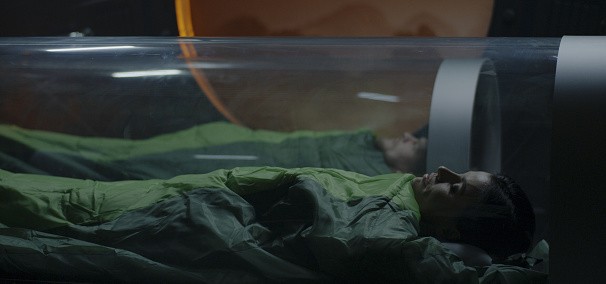
Humans did not evolve to hibernate for many reasons, but scientists suggest that this ability might be the key to the success of long spaceflights.
Why Don't Humans Hibernate?
Hibernation refers to the adaptive skill which helps many creatures survive cold and dark winters when resources such as food are not sufficient. During this process, many mammals and birds turn down their metabolism in order to conserve energy.
True hibernators include animals such as fishes, reptiles, and amphibians which have near-freezing body temperatures during winter. There are also mammals like bears that hibernate, although they do not experience the same degree of drop in temperature and can be awakened easily.
Scientists believe that our prehistoric ancestors did hibernate in the past. In a 2020 study, it was suggested that early humans from half a million years ago may have hibernated in order to survive extremely cold environmental conditions.
According to Dr. Sandy Martin from the University of Colorado, modern humans probably do not hibernate because it is not our evolutionary advantage. This skill would not have promoted survival and reproduction.
Shutting down one's metabolism would make an individual unable to reproduce. This makes other competitor species reproduce more and possibly take their place. Being in this state can also make a human unable to defend themselves from predators.
There seems to be no need for humans to hibernate since we evolved in a tropical environment where food was sufficient year-round. In addition to this, humans also discovered fire, clothes, shelter, hunting, and agriculture, all of which are much more effective in surviving the cold.
Can Humans Hibernate in the Future?
No human has entered hibernation, but it is already a common practice to use hypothermia for medical purposes. As a matter of fact, therapeutic cooling is not even a modern concept. During the 5th century B.C.E., Greek physician Hippocrates recommended that wounded soldiers be treated in the snow.
Nowadays, doctors use this method to limit damage to vital organs. For instance, a stroke or heart attack can be fatal within minutes as the blood flow to the heart and brain is interrupted.
When the body temperature drops to hibernation levels, the tissues will need less oxygen.
A 2018 study revealed that hibernation may increase a person's resilience during organ transplant and prevent muscle wasting and osteoporosis in individuals with limited mobility. It can also prevent organ or body shock and can cause cancer cells to be dormant until better treatment options are available.
According to several studies, human-induced hibernation can also be significant for space exploration in the future. Sleeping for long periods can cut down on the stress of spaceflight and extend valuable life support resources.
In the paper "Advanced Concept for a crewed mission to the Martian moons," researchers considered the potential benefits of hibernation for human space flights to Mars. They proposed that hibernation induced through therapeutic hypothermia could reduce water and food intake by up to 75%, reduce waste production, and protect against radiation.
Check out more news and information on Hibernation in Science Times.
© 2025 ScienceTimes.com All rights reserved. Do not reproduce without permission. The window to the world of Science Times.












